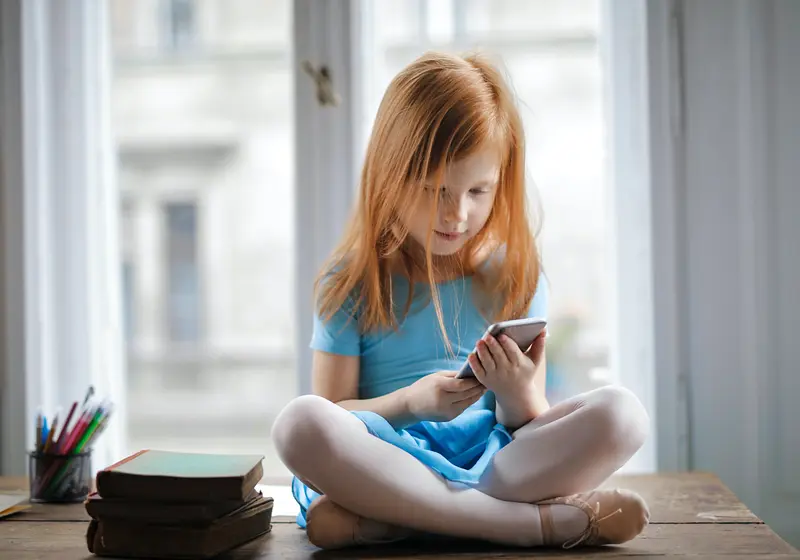Social media is a keystone in most teenage lives. 54 percent of teens say that it would be difficult to give up social media. As social media users continue to get younger, the culture around it changes drastically.
Already, the existence of social media marks a sharp disparity between our generation and past ones. Kids as young as 3 years old know their way around Youtube in order to find their favorite creators. How does this affect growth, especially in teenagers?
Social media is used in various different ways. People can get media reccomendations, news, and even gain new friends from social media. However, do the positives of social media outshine the negatives?
Let us slide into your dms 🥰
Get notified of top trending articles like this one every week! (we won't spam you)Communication
The creation of the 'first' social media in 1997 (SixDegrees.com) paved way for the social media that would connect our world today. Social media sights such as Instagram and Snapchat allow teens today to have quicker communication with each other. Messages can be relayed in mere seconds, and a conversation can occur in minutes or could continue for hours with gaps in between. Not to mention, social media allows for increased visual and audio communication as well.
The new abilities that social media offers for communication are the prime reason teenagers are so attracted to it. In the past, communication would occur primarily in real life or over the phone, both with limitations. Teens couldn't send each other quick DMs, rather, many resorted to writing physical notes. Social media has created a world more interconnected than ever seen before.
However, how do increased levels of digital communication affect us?
Most people have heard that teenagers have fewer in-person social skills than other generations because of the digital world. Though others would argue that social media has made teenagers more aware of social issues. Both of these statements are true but are also paradoxes.
In terms of social skills, many teenagers don't fit into the expectations that older generations have about interpersonal connections. Many prefer talking online to talking in real life, which is shown to hinder emotional growth.
However, social media can help people find communities that may not exist in their area. This creates a sense of belonging, which is a value that most teenagers have. Teens can share more niche interests with others, and get a similar sense of emotional growth and interpersonal connections.
But to what extent can we equate digital communication to real-life communication?
Additionally, it is commonly accepted that you can say relatively anything behind a screen. One can hide behind a fake profile and say whatever they want. This is not done easily in real life. This can cause less cognitive thinking about things teens plan to say.
While teens are able to readily access information through social media, we must consider its accuracy. Essentially, anyone could put out information on social media, which influences the minds of teenagers very easily. We see this phenomenon in instances of misinformation, or failure to consider other points of views.
The unlimited access to information through social media also creates doom scrolling. Doom scrolling is the behavior of people to continue to look at upsetting events because they cannot stop scrolling. It relates directly to social media addiction. Many teens struggle with this, and end up making themselves more distraught by continuing to look at certain things on social media.
Access to information can make teens more socially aware. Gaining knowledge through social media is possible, and is especially positive when it leads teenagers to introspection.

Take the Quiz: Which Female Character Trope Do You Belong To?
Whether it's in film, TV, or literature, you've likely come across these female character tropes. Take this quiz to discover which one best matches...
Mental Health of Teens
Comparison and jealousy has infiltrated teenage life, making it a normal part of our daily life. Both of these cause overwhelming sadness. But it shouldn't have to be a normal part of life.
Maybe it's possible to create non-curated social media, like BeReal, or maybe it's time to limit social media all together. When we repeatedly monitor celebrities or people who we percieve as better than us, we conciously or subconciously compare ourselves to them. It's commonly known that comparison fosters depression.
Finding myself always curating my life to be "instagram-worthy" and comparing myself to the curated identities on social media was the source of my curiousness about social media's relation to mental health. Statistics from OQEA show that depression levels amongst teens have risen as social media use has grown.
Addiction
Yes, social media is addictive. Many young adults and even very young children have screen times over 12 hours, which is half the day. Spending all of one's time on social media has many detriments.
Too much social media use can cause people to lose focus on important tasks. Phones are often to blame for dropping grades, as many teens can't seem to put them away. Social media has also decreased the average attention rates. Over-consumption of 6 second videos or quick reads results in people feeling bored easily.
Social media addiction can be addressed, with screen time functions being accessible. Though, with a tap of a button, one could lose self control and turn off the limits.
Make the choice
You have control over wether or not your social media usage hinders or benefits your life. Using screen time functions, scheduling phone free days/evenings, and slowly cutting chunks off of phone usage are all ways to help change social media usage. But remember, weening off of social media takes dedication and time. It's not as easy as it looks.








.jpg)


